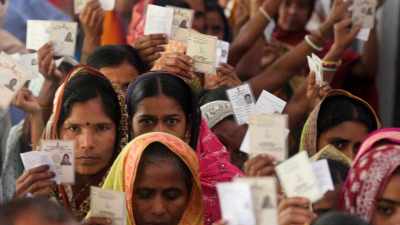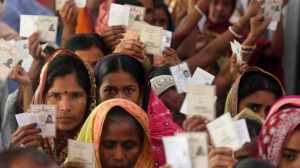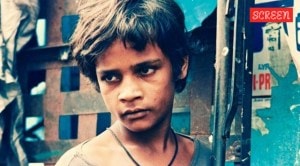Click here to join Express Pune WhatsApp channel and get a curated list of our stories
Postcards from the Past: Shrikrishna Chitale on building a sweets empire back when Pune relied on tangas
When Chitale joined his family-run enterprise Chitale Bandhu Mithaiwale in the mid-1960s, business for the famous sweets house revolved around milk and sweets.
 Shrikrishna Chitale. (Express Photo)
Shrikrishna Chitale. (Express Photo) Shrikrishna Chitale, 73, a partner in the major sweets brand Chitale Bandhu Mithaiwale, remembers Pune as a city where horse-drawn tangas or carriages were more in number than present-day autorickshaws. Traffic was non-existent and it took him 5-10 minutes to reach Swargate from their shop on Bajirao Road.
“Near the present-day Umraya Ganapati, there was a stand for tangas, which was operational till 1975. Slowly, tangas were eased out of the city,” he says. Chitale, who studied at Nutan Marathi Vidyalaya (NuMaVi), also recollects that back in the day, milk from their dairy in Sangli district’s Bhilawadi village was taken to Pune in railway carriages and further transported in bullock carts. “In those days, we used to home-deliver milk and by the time we stopped that service, we had around 200 delivery boys,” he says.
The Panshet flood and bouncing back to business in 5 days
The Panshet flood of July 1961 occupies a very prominent place in Chitale’s early memories of Pune. “We used to stay in Gadgil Road and my uncle and father ran two outlets, one near Kunte Chowk and the other in Deccan Gymkhana,” he says. The shop, in the early 1960s, was located in a 100 sq ft space just opposite the present location.
“The day the dam burst, we had gone to school but were sent back as the flood water was supposed to reach Pune any time. The flood waters reached Vijay Talkies Chowk on Laxmi Road. Our outlet at Bajirao Road and our home were safe. But the Deccan Gymkhana shop was underwater for two whole days,” he said. When the flood waters receded, it left behind a trail of destruction. “Barring a wall clock, everything else was destroyed. It was a herculean task to clean up the debris but we were back in business on the fifth day. Customers lined up for their share of milk and milk products,” he said.
The floods changed the geography of the city – many people settled in the present Sahakarnagar area. This change brought with it a flurry of construction activities which was perhaps the first change in the skyline of the city. “We used to cycle to the Aryanshewar temple and it was the only visible landmark in that part of the town. But now I find it difficult to locate the temple amid the crowd of buildings,” he said.
When Chitale joined the business in the mid-1960s, business for the famous sweets house revolved around milk and sweets. “People were particular about mava modaks and the concept of kaju, chocolate and other flavoured modaks were not there,” he said. Also the business relied heavily on sweets while savoury (namkeen) items were just a minor part of the business. But now, the trend has reversed, savoury items are sold more, with innovations also being welcomed by customers.
When going to Deccan required permission and Aundh was almost out of Pune
The Chitale family stayed in Gadgil Road while their shop was Kunte Chowk on an 800 sq ft space. It was only in 1964-65 that the shop moved into its present location on Bajirao Road. “Laxmi Road and these areas were always commercial hubs so these areas were busy back then but traffic was thinner,” he says. The young Chitale had to take permission to go to Rahul Talkies on Ganeshkhind Road for a movie. Other than Rahul, Vijay Talkies, Bhanuvilas and Natraj Cinema in Deccan were the other movie halls which Chitale remembers. “Aundh was out of Pune. Camp was a bustling place while Kalyaninagar and areas beyond were also out of Pune,” he adds.
The only way to travel to the company’s Bhilawadi dairy was by an overnight train. His uncle and father ran the business and many of their customers had personal relations with them. “Many of the customers were known by their names,” he says. The first franchise the firm gave was for the shop in the Sahakarnagar area which was opened in the 1980s. “Our customers who settled there post the flood wanted a shop and that is how the shop came about,” he remembers. At present, Chitale lives in Pune with his family which includes a son and a daughter.
Bakarwadi and mechanisation
Bakarwadi — the most famous of the brand’s products — has an interesting story. The original bakarwadi is from Gujarat but it is much sweeter than the one that became popular in Maharashtra. In the 1970s, the Gujarati snack was first introduced at Chitale’s shop after it was adapted for the Maharashtrian palate. “The snack was a roaring success – the first batch sold out immediately. I remember people queuing up outside the shop,” he says. During its initial days, the snack was made completely by hand with an army of labourers. Subsequently, the Chitales invested in a machine to cater to the growing demand. They were in fact one of the first to invest in machinery to make sweets.
During one of the television programmes aired on the state-run Sahyadari Vahini, mechanisation involved in making bakarwadi was discussed. “The programme was aired 10 years after we had mechanised the process but customers came to complain that the taste of the bakarwadi had changed,” he said.
Pune, for Chitale, has grown by leaps and bounds. While it has brought about cosmopolitanism in the city, he only wishes the city was cleaner and more organised.
Click here to join Express Pune WhatsApp channel and get a curated list of our stories













